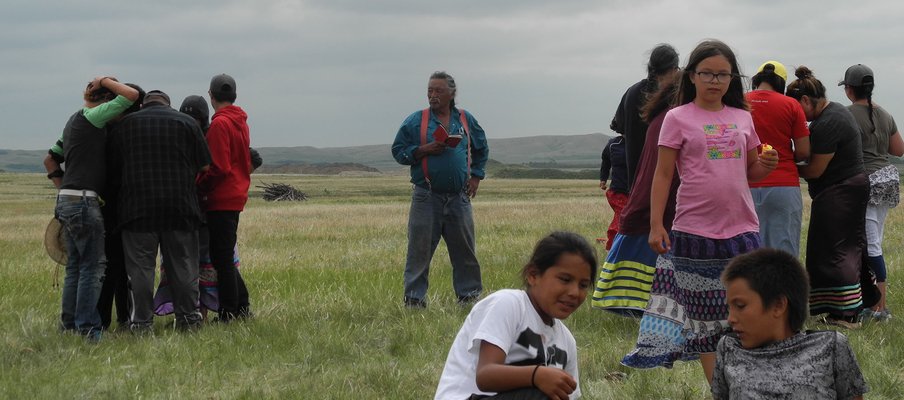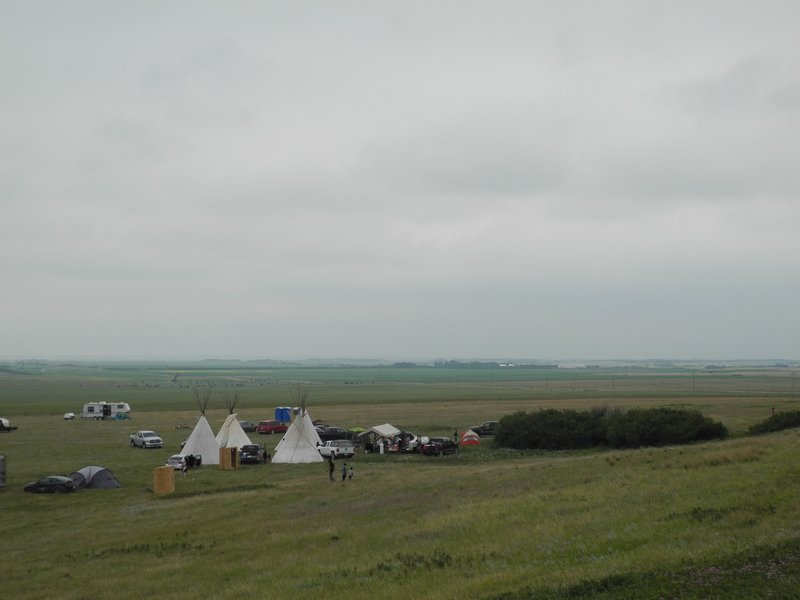Keeping Language Alive

Language camps presented by Saskatchewan Indigenous Cultural Centre (SICC) helps preserve First Nations word view.
SICC was one of five organizations that participated in the Resilience and Respect: Canada 150 & Beyond project. As part of this initiative, SICC hosted six youth-focused language camps during the summer of 2017. The camps were held at Standing Buffalo First Nation, Pheasant Rump Nakoda Nation, Sweetgrass First Nation, Wahpeton, Fort Qu’Appelle and James Smith Cree Nation.
Through community Elder guidance, the camps assisted Saskatchewan First Nations communities with conversational language and incorporated the First Nation world view, way of life, kinship and land stewardship. These camps also recognize the importance of youth in keeping alive these languages and traditional First Nations’ way of life.
According to Wanda Wilson, president, SICC, with language comes knowledge. “A lot of our Elders say, ‘Our language has a spirit,’ and we can’t feel that spirit when we are in a classroom and writing it down. We are trying to use concepts that don’t belong to us, when we try to recapture or preserve our languages – and that isn’t working.”
Wilson goes on to say that these camps are important as they are more authentic and engaging ways to learn language. “We are also connecting with the land. The spirit of the language comes out from it,” she further explains.
“A lot of our Elders say, ‘Our language has a spirit,’ and we can’t feel that spirit when we are in a classroom and writing it down. We are trying to use concepts that don’t belong to us, when we try to recapture or preserve our languages – and that isn’t working.”
Camp participants had the opportunity to learn language while being immersed in a variety of First Nations’ traditions such as medicine walks, tipi teachings, moccasin-making, traditional food knowledge and teachings. Several of the camps also included the construction of ceremonial lodges. At Standing Buffalo Youth Camp, the camp also incorporated the Dakota language into the youth’s activities that focused on the buffalo, which included ceremonies taking a buffalo’s life, as well as smoking, hide scraping and tanning.
Camp participant Ashley Waditika says, “We are thankful for the ones who have travelled a long way and took time out of their life to come over and share some knowledge with the people here.”

The legacy of this Resilience and Respect Canada 150 project would see communities empowered to host their own camps in the future.
Wilson says that “Through these projects, the community will have the knowledge and necessary tools to ensure the continuance of language camps that are planned, hosted and facilitated by the community itself.”
She adds that the communities involved recognize that there is an importance for youth to carry on the traditional First Nations way of life. She hopes that these camps will spark an interest within them to build and carry on this knowledge.



